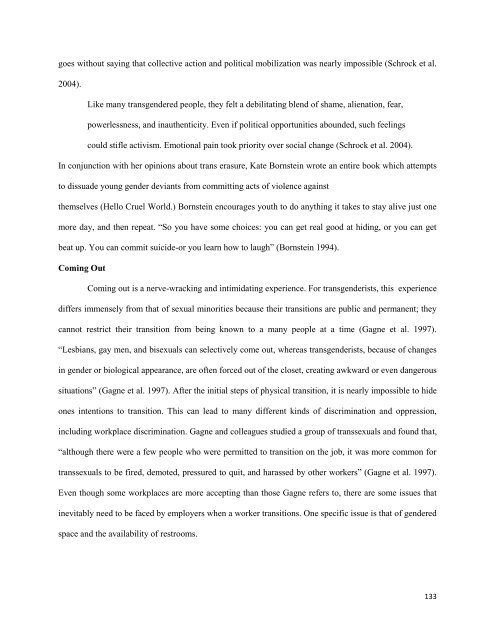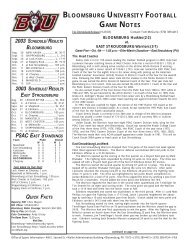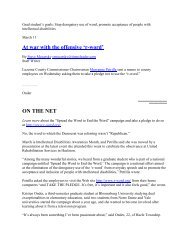Human Rights at Home and Abroad: Past, Present, and Future
Human Rights at Home and Abroad: Past, Present, and Future
Human Rights at Home and Abroad: Past, Present, and Future
You also want an ePaper? Increase the reach of your titles
YUMPU automatically turns print PDFs into web optimized ePapers that Google loves.
goes without saying th<strong>at</strong> collective action <strong>and</strong> political mobiliz<strong>at</strong>ion was nearly impossible (Schrock et al.<br />
2004).<br />
Like many transgendered people, they felt a debilit<strong>at</strong>ing blend of shame, alien<strong>at</strong>ion, fear,<br />
powerlessness, <strong>and</strong> inauthenticity. Even if political opportunities abounded, such feelings<br />
could stifle activism. Emotional pain took priority over social change (Schrock et al. 2004).<br />
In conjunction with her opinions about trans erasure, K<strong>at</strong>e Bornstein wrote an entire book which <strong>at</strong>tempts<br />
to dissuade young gender deviants from committing acts of violence against<br />
themselves (Hello Cruel World.) Bornstein encourages youth to do anything it takes to stay alive just one<br />
more day, <strong>and</strong> then repe<strong>at</strong>. ―So you have some choices: you can get real good <strong>at</strong> hiding, or you can get<br />
be<strong>at</strong> up. You can commit suicide-or you learn how to laugh‖ (Bornstein 1994).<br />
Coming Out<br />
Coming out is a nerve-wracking <strong>and</strong> intimid<strong>at</strong>ing experience. For transgenderists, this experience<br />
differs immensely from th<strong>at</strong> of sexual minorities because their transitions are public <strong>and</strong> permanent; they<br />
cannot restrict their transition from being known to a many people <strong>at</strong> a time (Gagne et al. 1997).<br />
―Lesbians, gay men, <strong>and</strong> bisexuals can selectively come out, whereas transgenderists, because of changes<br />
in gender or biological appearance, are often forced out of the closet, cre<strong>at</strong>ing awkward or even dangerous<br />
situ<strong>at</strong>ions‖ (Gagne et al. 1997). After the initial steps of physical transition, it is nearly impossible to hide<br />
ones intentions to transition. This can lead to many different kinds of discrimin<strong>at</strong>ion <strong>and</strong> oppression,<br />
including workplace discrimin<strong>at</strong>ion. Gagne <strong>and</strong> colleagues studied a group of transsexuals <strong>and</strong> found th<strong>at</strong>,<br />
―although there were a few people who were permitted to transition on the job, it was more common for<br />
transsexuals to be fired, demoted, pressured to quit, <strong>and</strong> harassed by other workers‖ (Gagne et al. 1997).<br />
Even though some workplaces are more accepting than those Gagne refers to, there are some issues th<strong>at</strong><br />
inevitably need to be faced by employers when a worker transitions. One specific issue is th<strong>at</strong> of gendered<br />
space <strong>and</strong> the availability of restrooms.<br />
133
















